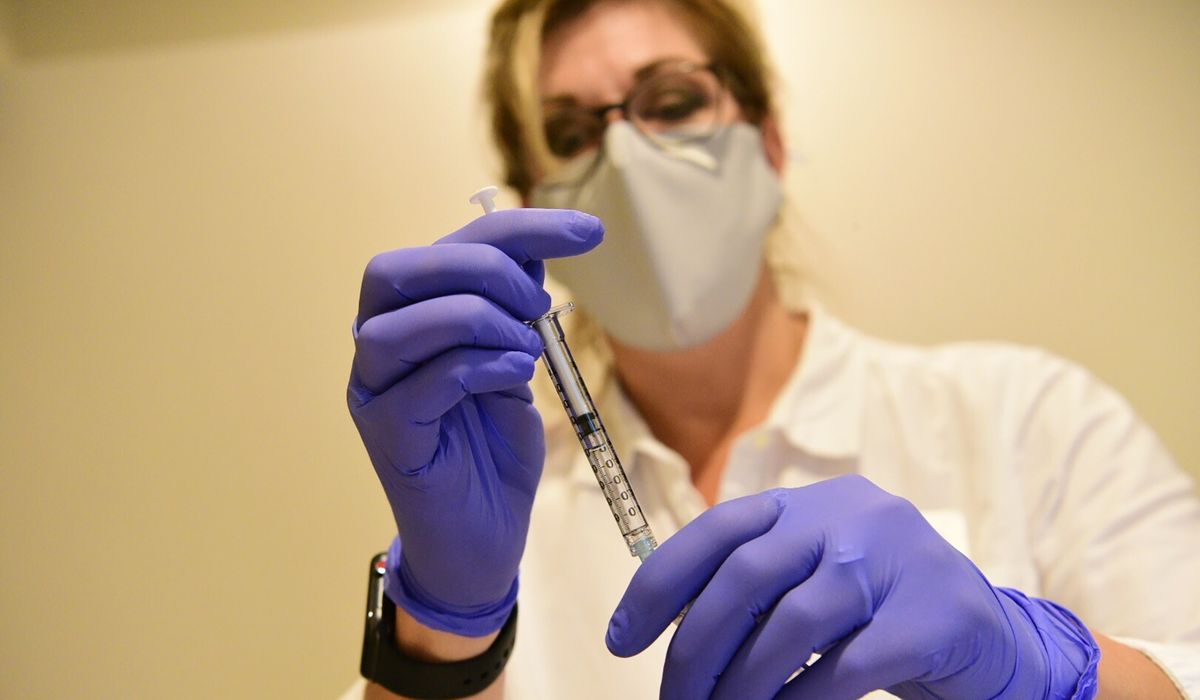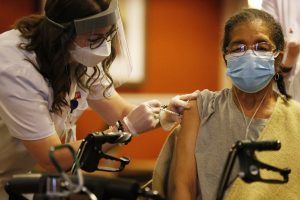Johnson & Johnson’s coronavirus vaccine was less effective than existing versions but staved off severe disease with one dose, likely adding a key weapon in the race to prevent deaths and hospitalizations.
The company tested its adenovirus vaccine in nearly 45,000 people in the U.S., Latin America and South Africa and found it was 66% effective in preventing moderate-to-severe cases across countries, according to data reported Friday.
Protection varied across the globe, at 72% in the U.S. and 57% in South Africa, which is contending with an aggressive strain of the virus.
Notably, the shot was 85% effective in preventing the worst cases across all regions, with no one in the vaccine arm of the trial dying or landing in the hospital 28 days after administration. The company said there were deaths, but they all occurred in the placebo group.
Scientists fear the South African variant will diminish the power of vaccines, and overall efficacy there was lower. However, no South African who received the shot died or even had to go to the hospital.
Researchers are still studying whether people in the trial acquired asymptomatic cases and passed the virus on. They expect to have better data in the coming weeks.
Because the J&J vaccine is delivered in a single dose instead of two, adding it to the arsenal would accelerate and simplify the immunization effort.
“The potential to significantly reduce the burden of severe disease, by providing an effective and well-tolerated vaccine with just one immunization, is a critical component of the global public health response,” J&J’s chief scientific officer Paul Stoffels said in a conference call with the National Institutes of Health.
The company expects to file for emergency use from the Food and Drug Administration as soon as next week. It’s committed to providing 100 million doses to the U.S. by the end of June.
The U.S. is dispatching two messenger-RNA vaccines from Pfizer-BioNTech and Moderna that demonstrated 95% efficacy in human trials. U.S. regulators approved each of those versions for emergency use in December.
Dr. Anthony Fauci, who leads infectious disease research at NIH, said it is important to keep the new data in perspective. Had the first pair of vaccines not delivered astounding data, he said, “one would have said this was an absolutely spectacular result [from J&J].”
Dr. Fauci said he understands the government might have a “messaging problem” because of the gulf in efficacy rates. He said it is important to focus on J&J’s ability to stave off serious disease, as opposed to a few aches.
“You’ve got to make sure people understand the implications,” Dr. Fauci said.
Besides being one shot, the J&J vaccine is viable at refrigeration temperatures for up to three months, a longer shelf life than existing vaccines that require a deeper freeze.
“Frankly, simple is beautiful,” said Matt Hepburn, project lead for Operation Warp Speed.
NIH Director Francis Collins said it will be important to use “all the tools in the toolbox” as the government seeks ways to speed the immunization effort.
There might be some level of choice in which vaccines local governments receive For instance, rural areas might like the ease of having a one-dose vaccine, according to Dr. Fauci.
Elsewhere, Novavax this week said its protein-based vaccine was 90% effective in U.K. trials but far less impactful against the South African variant, at 49%. The findings were based on preliminary data from ongoing trials.



















